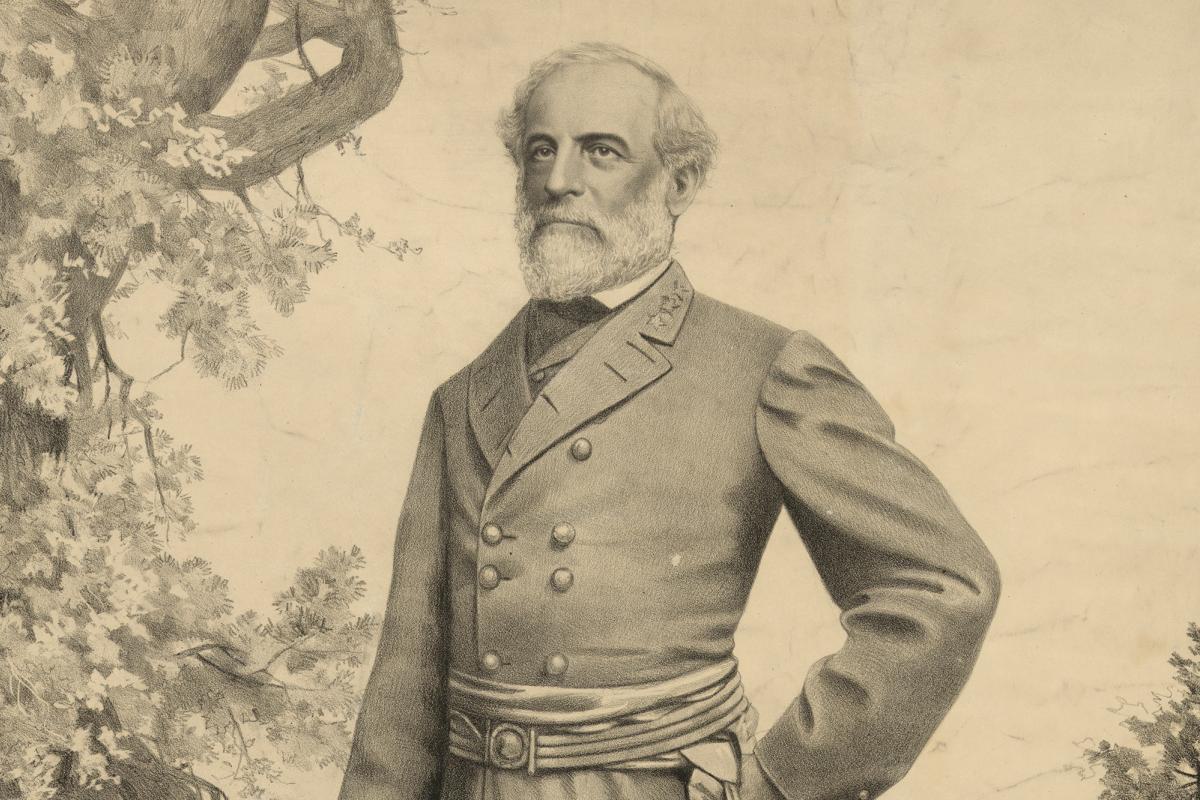Today is an official state holiday. State offices and most schools will be closed in honor of the legendary Confederate General Robert E. Lee.
Lee’s memory has been celebrated by generations of southerners and his career is studied by military professionals to this day. The State of Alabama celebrated Robert E Lee Day long before it was merged with the Rev. Martin Luther King Jr.’s birthday celebration. Alabama is one of the few states that celebrate Robert E. Lee Day as an official state holiday.
Lee is best known for leading the Confederate armed forces during the War Between the States in the 1860’s.
Lee was born on Jan. 19, 1807, in Stratford, Virginia. His father was Revolutionary War hero Major General Henry “Light-Horse Harry” Lee III. Robert spent very little time with his Revolutionary War hero father and former Governor of Virginia. The elder Lee squandered the family fortune and went to debtor’s prison in 1809 and left his wife, their six children, and the country in 1812 in an attempt to recover his poor health. He died when Robert was 11 so the younger Lee never experienced the lavish lifestyle his family had enjoyed prior to their downfall. Lee, his mother, and siblings were forced to rely on the goodwill of affluent relatives and friends. The younger Lee attended the U.S. Military Academy at West Point, where he was second in his class. Lee spent decades as an officer and an engineer. Lee served on General Winfield Scott’s staff in the Mexican-American War, was the Commandant at West Point, fought Indians in the West and led the American response to crush John Brown’s attempted insurrection as a member of the U.S. Army.
At Scott’s urging, President Abraham Lincoln (R) offered Lee command of all the Union forces, but he chose to resign his commission and serve his native Virginia in the Civil War instead.
Lee had relatives on both sides of the conflict and Lee’s sons only joined the Confederacy after their father’s decision. Forty percent of Lee’s fellow Virginians in the U.S. officer corps stayed with the union.
Lee was named as one of the original five full generals in the Confederacy and became the military advisor to Confederate President Jefferson Davis. Lee was defeated at the Battle of Cheat Mountain by Gen. Joseph Reynolds in western Virginia. He was reassigned to improving Confederate coastal defenses around Savannah.
When the Union’s Army of the Potomac under the command of Gen. George McClellan advanced on the Confederate capital at Richmond in the Spring of 1862 it appeared that the South was lost. Fate intervened and Confederate General Joseph Johnston was wounded on June 1, 1862. Davis gave Lee command of the Army of Virginia, which he renamed the Army of Northern Virginia. Lee’s appointment was a very unpopular decision with Confederate newspaper editors who preferred someone else.
Lee not only drove back McClellan but earned a reputation as one of the best military tacticians in American history. The Confederate States of America should have been easily crushed by the better equipped and supplied Union forces but better leadership by people like Lee, Thomas Jonathan “Stonewall” Jackson, James Longstreet, A. P. Hill, etc. almost turned the tide in favor of the Confederacy several times. The North won only due to Lincoln’s resolve to keep fighting no matter how many soldiers the Union lost.
In 1865, Lee finally abandoned his trench lines and the Confederate capital of Richmond and attempted to join his Army of Northern Virginia with Gen. Johnston’s army in North Carolina. Gen. Ulysses S. Grant blocked off that effort and surrounded Lee on April 9, 1865. General Lee chose to surrender rather than fight to the death.
Confederate forces under Lee’s direct command suffered over 125,000 casualties. Union Forces that directly opposed Lee’s army suffered over 166,000 casualties.
Lee returned home from the war on parole and eventually became the president of Washington College in Virginia – now known as Washington and Lee University.
He died on Oct. 12, 1870, in Lexington, Virginia.
A number of Black legislators over the years have introduced legislation to eliminate the Robert E. Lee holiday. State Rep. John Rogers (D-Birmingham) has introduced that legislation in the past.
To connect with the author of this story, or to comment, email brandon.moseley@1819News.com.










